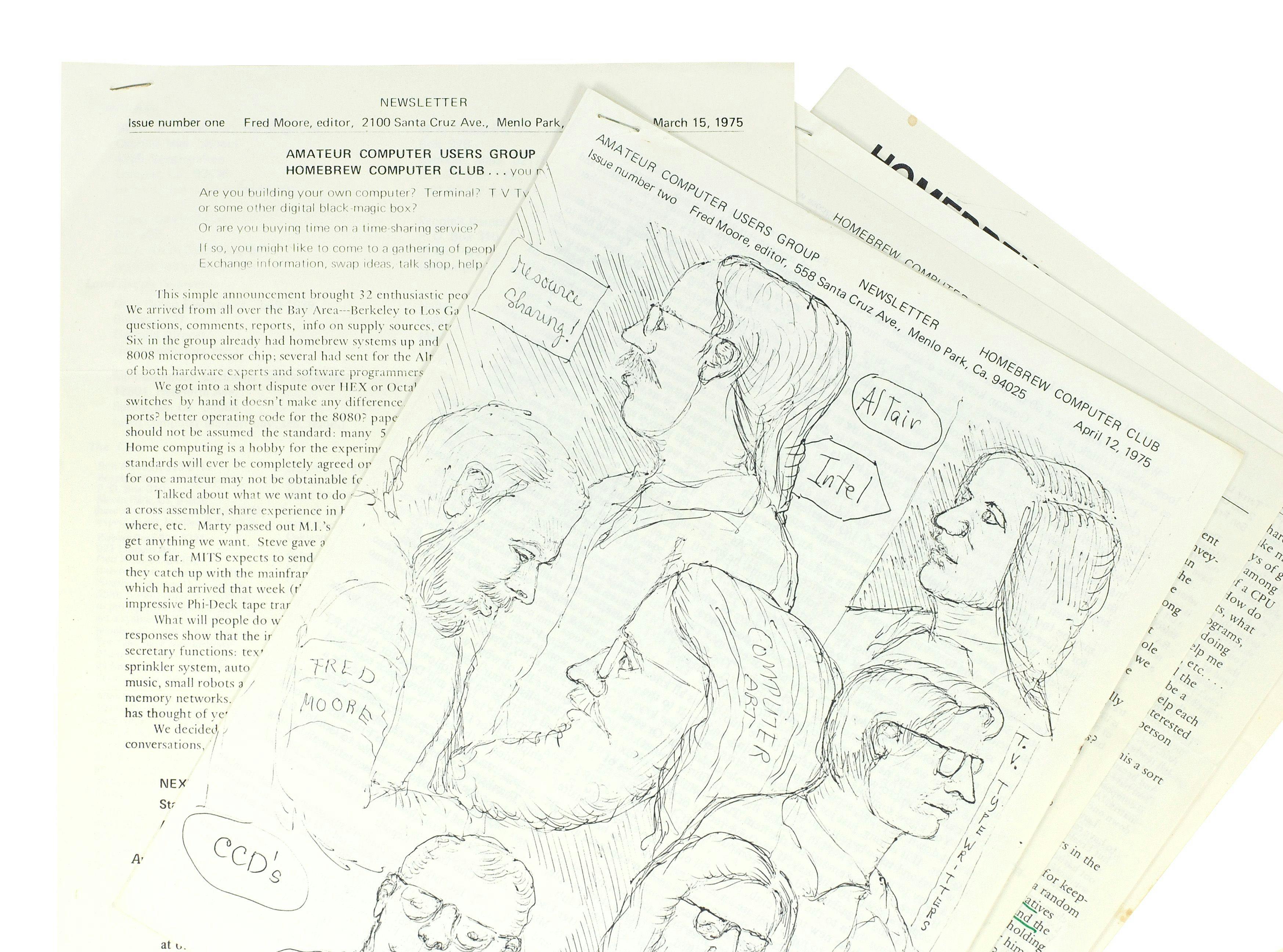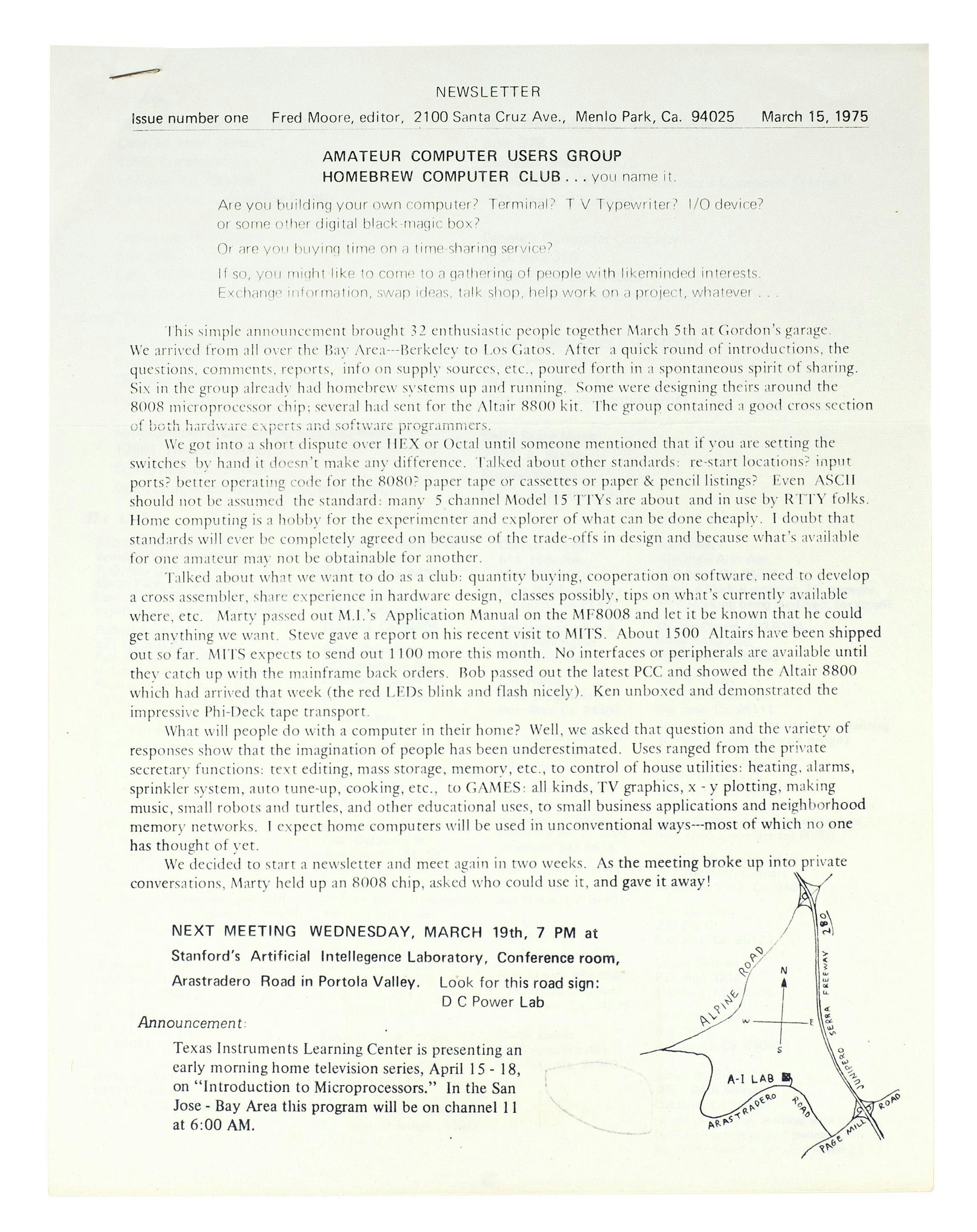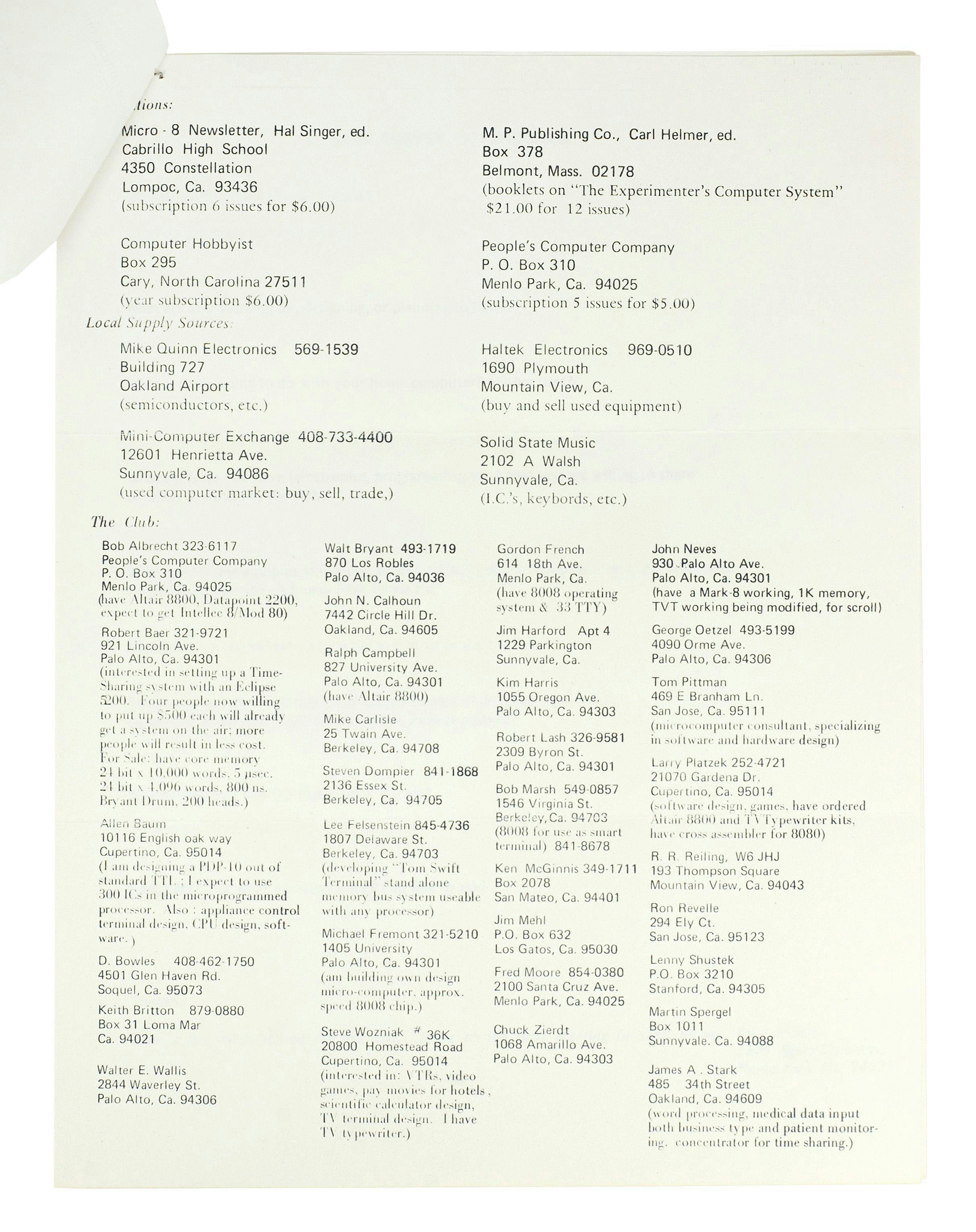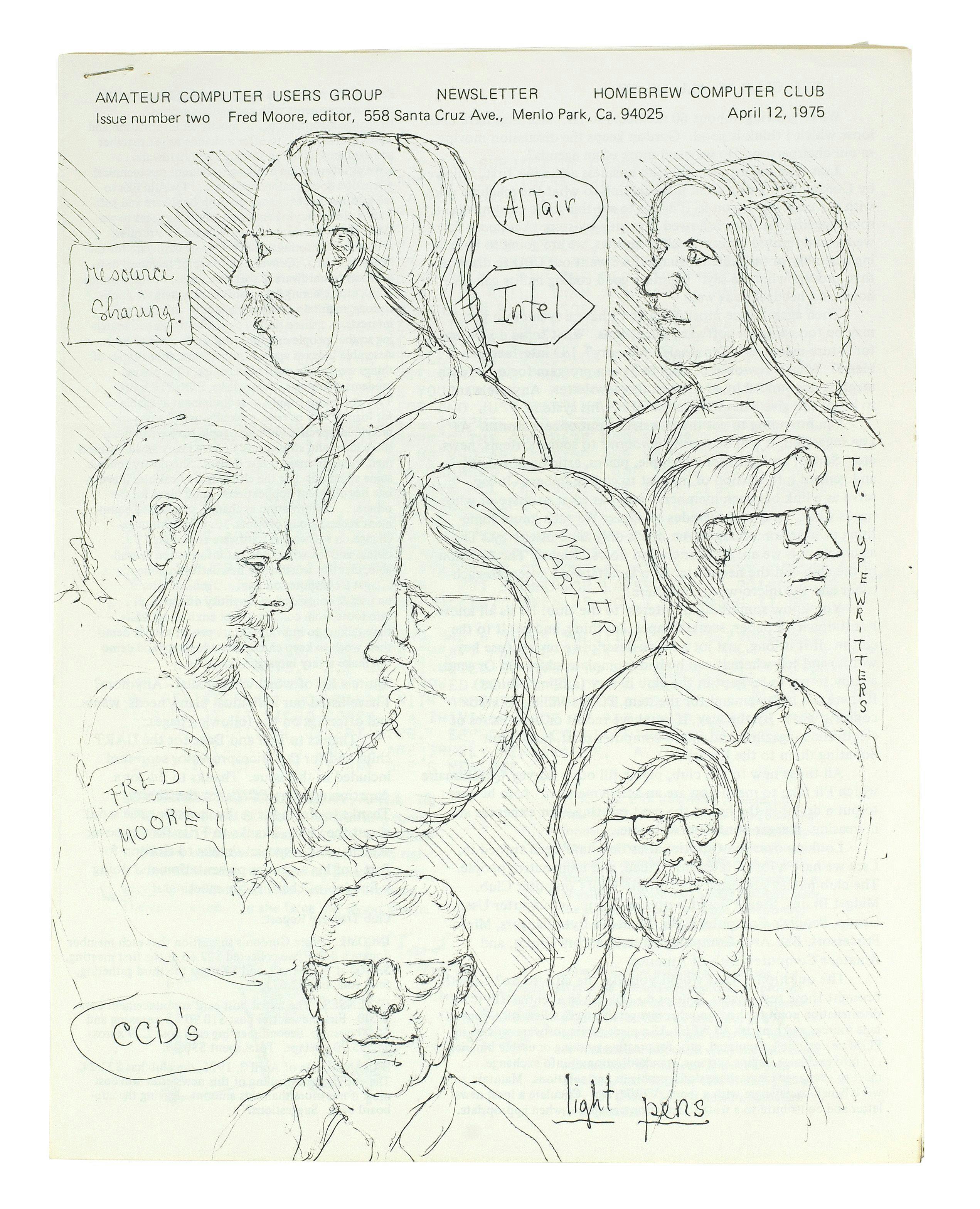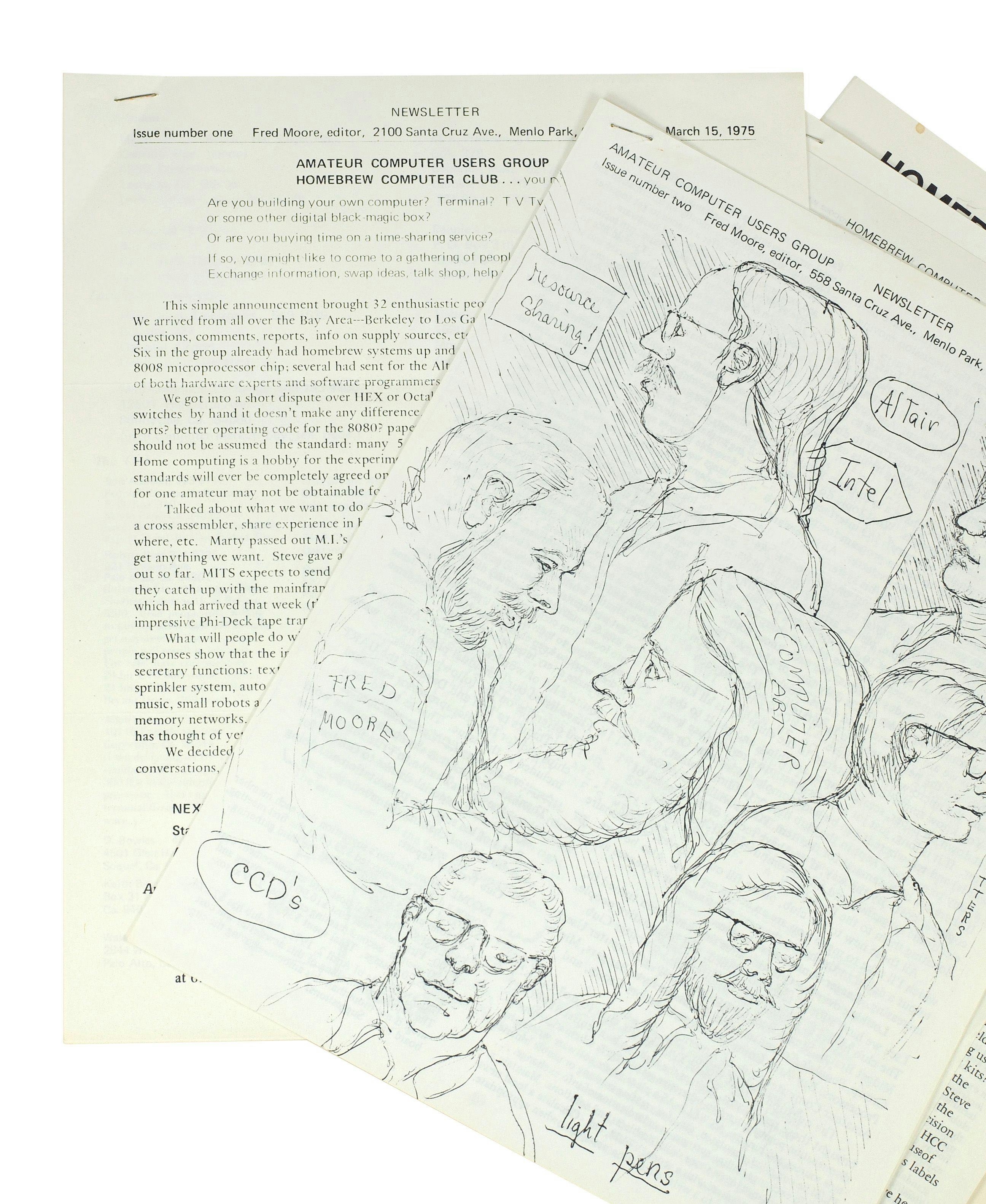AQ.0008
The Homebrew Computer Club:
Issues 1, 2, 4, 5, 6 (1975)
Newsletter issues
•
Acquired Nov 2022
Eureka
The Homebrew Computer Club was arguably the most important hobbyist group in the history of personal computing. It was the first amateur computer group in what would later be termed Silicon Valley, providing a forum for sharing new ideas, a swap meet for code and hardware, and a place to encounter like-minded collaborators. First meeting in a Menlo Park garage in 1975, the group played in pivotal role in the microcomputer revolution and laid the groundwork for the decades of innovation that followed.
Started by Gordon French and Fred Moore, the Homebrew Computer Club included such tech luminaries as Steve Jobs and Steve Wozniak, with numerous other high profile hackers and entrepreneurs also emerging from its ranks. In fact, it was the first Homebrew meeting that provided a “Eureka moment” for Wozniak, inspiring him to build his own computer “to show the people at Homebrew that it was possible to build a very affordable computer.” A year later, Wozniak and Jobs would debut the prototype Apple-1—not to the media, but to the club. As Woz would later say, “The Homebrew Computer Club was the most important event of my life.”
The first issue of the Homebrew Computer Club Newsletter was published just 10 days after its initial meeting and was one of the most influential forces in the formation of Silicon Valley culture. Created and edited by its members, it played a critical role in connecting members and circulating ideas. The newsletter reported on the lively meetings, described breakthroughs and inventions, and listed local resources and contacts. One notable entry was the publication of Bill Gates’s seminal “Open Letter to Hobbyists” in 1976. Within its pages, the idea of the personal computing revolution was unleashed. The newsletter perfectly encapsulates the creativity and vitality of these early renegades that would change the world.
This acquisition is of five early issues of the newsletter. Included is Issue 1, which records the first meeting, lists the names and addresses of the 32 founding members, and records their responses to the question “What will people do with a computer in their home?"
Overview
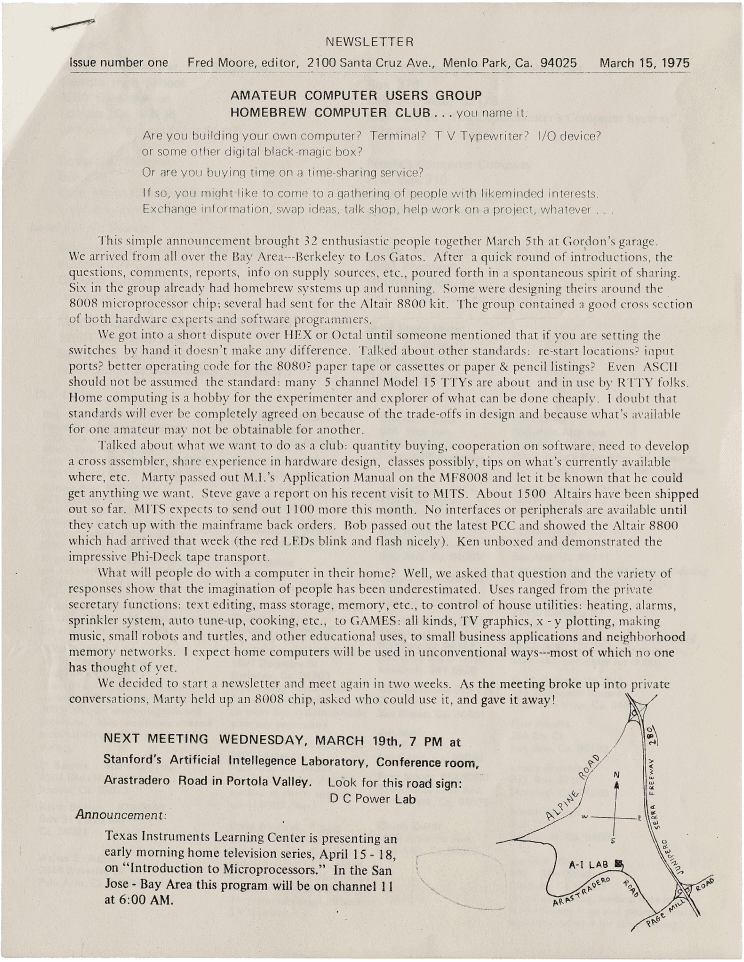
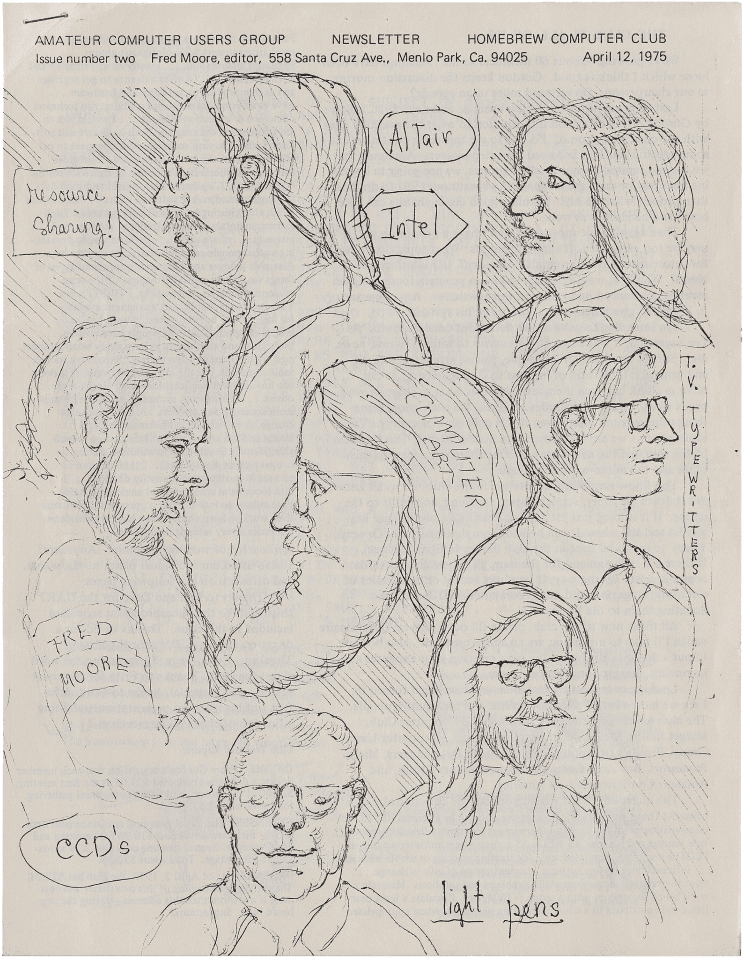
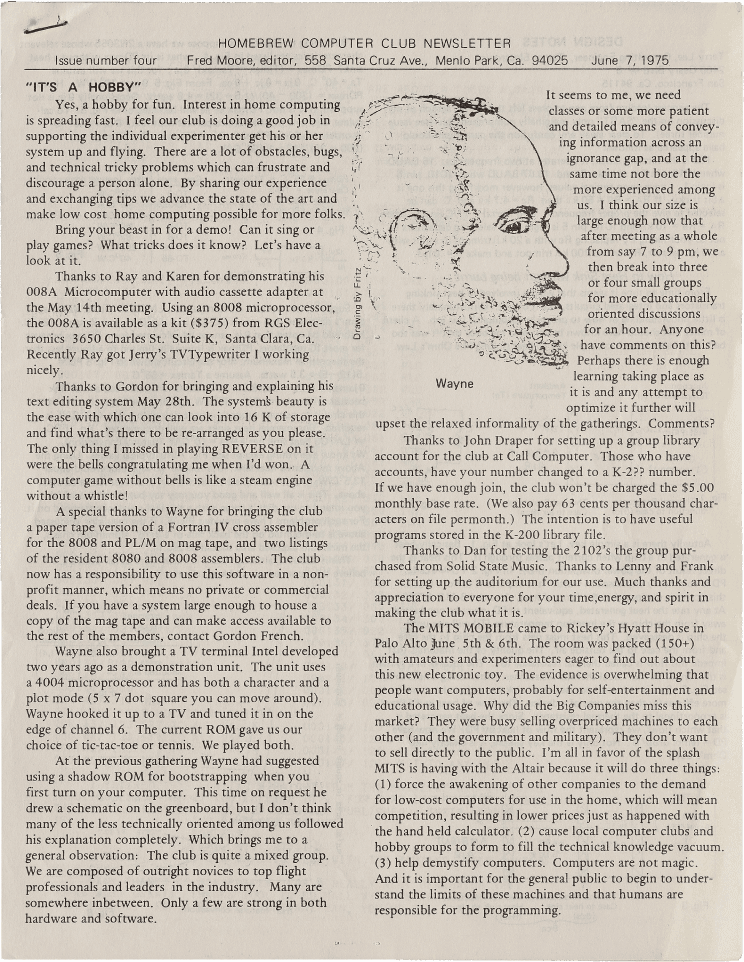
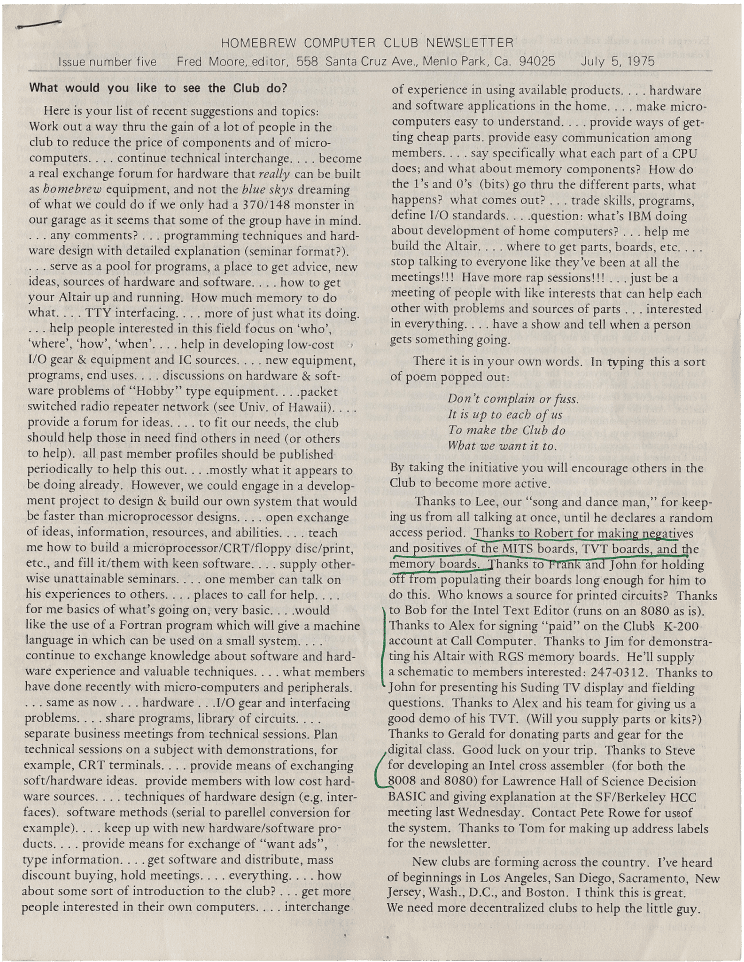
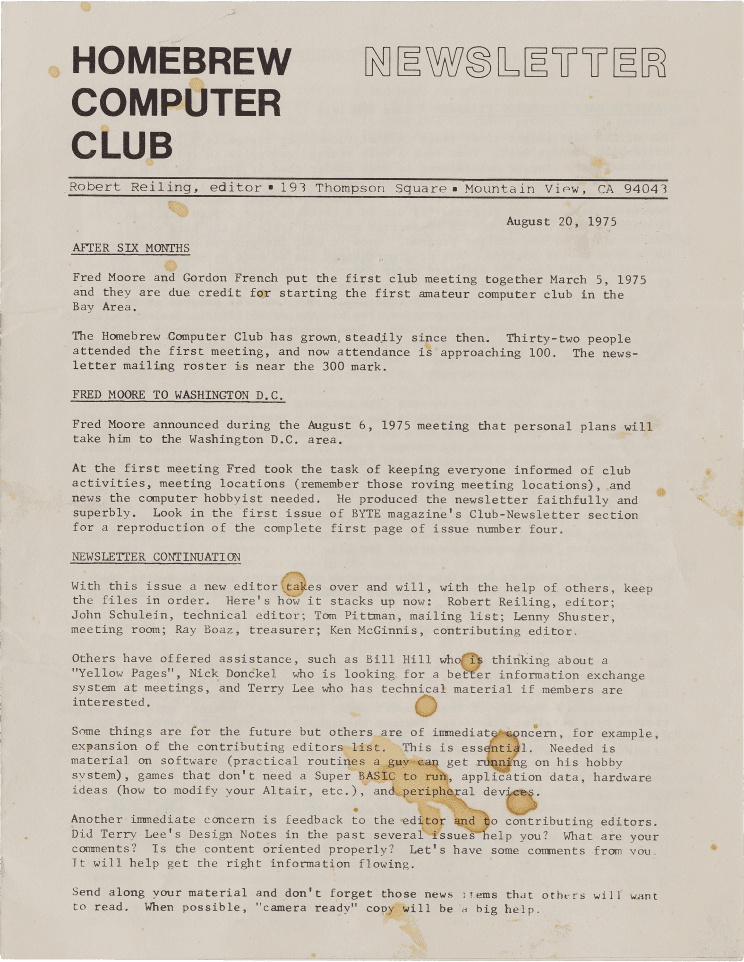
Meet the Homebrew Computer Club
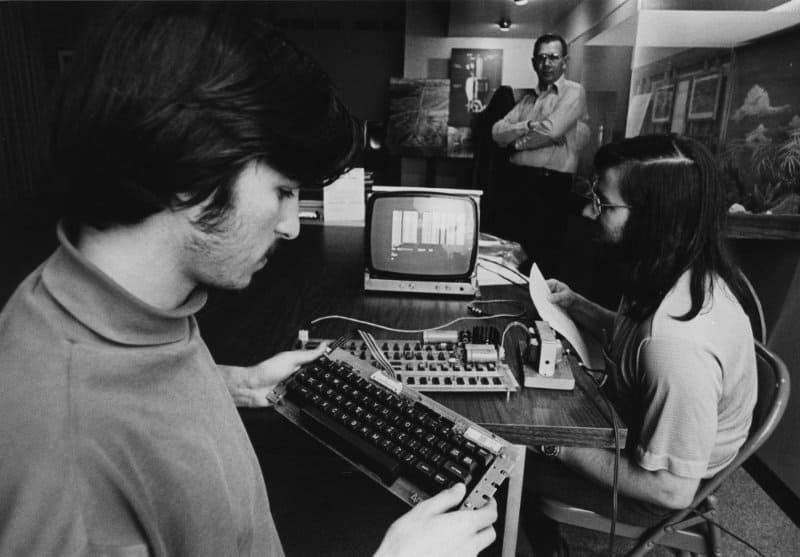
The Homebrew Computer Club was the first and most important group of computer hobbyists in the personal computing era. It was more than just a simple hobbyist group, however, becoming a forum for sharing ideas, swapping code and hardware, and meeting new collaborators. A critical component of the Club was its newsletter. Created and edited by its members, it was one of the most influential forces in the formation of Silicon Valley culture and the personal computer. “The open exchange of ideas that went on at its biweekly meetings did as much as anything to jumpstart the entire personal-computing revolution. It was the crucible for an entire industry" (Harry McCracken, TIME).
The group first met on March 5, 1975, in David French’s garage on the occasion of the arrival in the area of the first Altair 8800 microcomputer. While the official meetings were more or less formal, they were usually followed by informal swap meets, held in an off-campus Safeway parking lot and, later, at a bar known as The Oasis in Menlo Park. The group continued to meet until December, 1986, although many of the original members of the club have continued to meet throughout the years.
Dozens of computing legends would emerge from the club’s ranks, including Steve Jobs and Steve Wozniak, Harry Garland and Roger Melen (Cromemco), Thomas "Todd" Fischer (IMSAI Division, Fischer-Freitas Company), George Morrow (Morrow Designs), Paul Terrell (Byte Shop), Adam Osborne (Osborne Computer), and Bob Marsh (Processor Technology). John Draper was also a member of the club, as was Jerry Lawson (creator of the first cartridge-based video game system, Fairchild Channel F). Li-Chen Wang, developer of Palo Alto Tiny Basic and graphics software for the Cromemco Dazzler, was also a club member, and Lee Felsenstein was moderator of the club meetings.
Creators
Media Social
Last week, Arkive launched a new community proposal system, opening up the floor for any of our members to suggest an item to be acquired under the theme of “When Technology Was A Game Changer.” We received many thoughtful, interesting submissions, and we plan on presenting many of them over the next few months in thematic chunks researched and framed by our core team, in collaboration with the original submitter. To start, we’ve selected two objects that touched on an insistent thread within the proposals, a theme that we’re calling “Media Social”: an exploration of the kinds of social networks—past, present, and future—that technology makes possible.
As a part of the Web3 ecosystem, Arkive is part of a broader movement that seeks to expand the social potential of technology. This round, which was gathered from community proposals, provides a unique opportunity to investigate where we are situated within a longer pre-history (and a speculative future) of technology-facilitated communities.
On November 14, 2022, Arkive launched the "Media Social" acquisition round, engaging in dialogue, discussion, and conversation on two objects considering technological networks. The Homebrew Computer Club issues were considered alongside Neïl Beloufa's Host A trying to reach its audience.
After a series of votes, the community selected The Homebrew Computer Club Issues 1, 2, 4, 5, 6 as the eighth acquisition into the collection. Core team members then worked with community member Kevin Sell to acquire the newsletters. The issues will go on display globally via an Arkive traveling exhibition in late 2022. Following that, the work will enter into long term residency at a prominent public location, as selected by the Arkive membership.
About the acquisition
Select Voting Member Comments
Conversation
Additional Materials
We encourage you to read further into Homebrew Computer Club, their work, and their inspirations. To kickstart the process, please find a select interview below. As always, this is just the start. Apply to Arkive to continue the conversation with the community.
